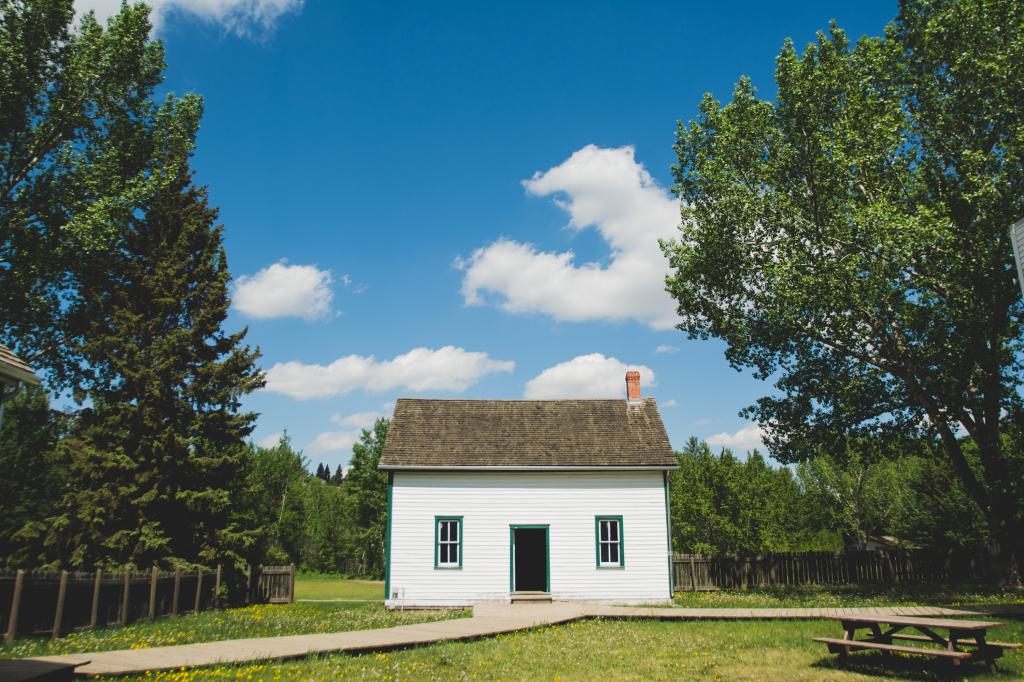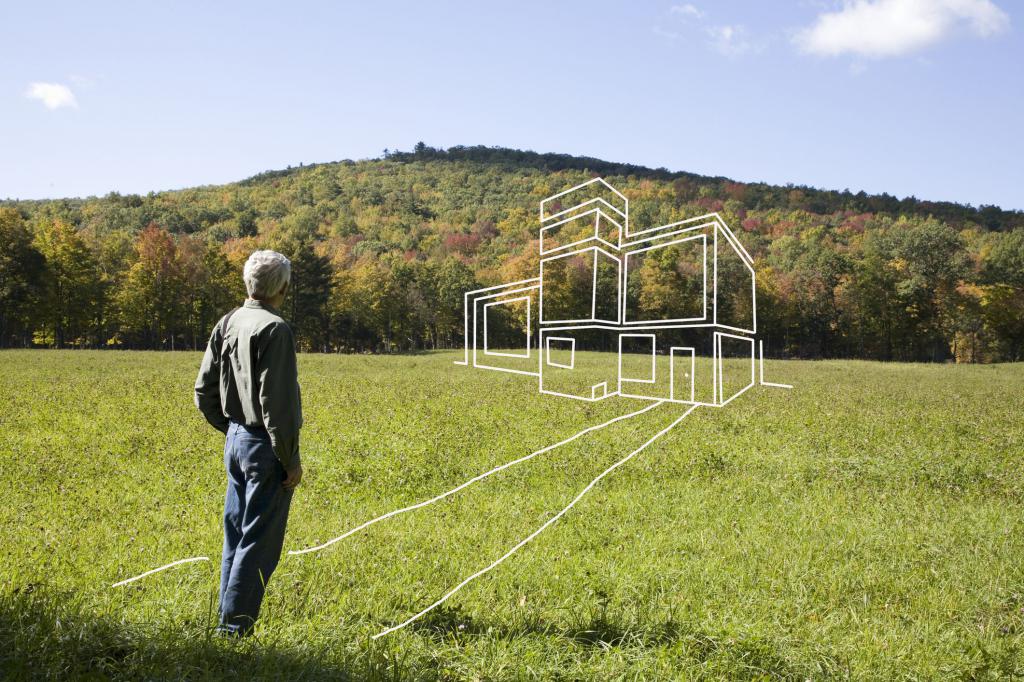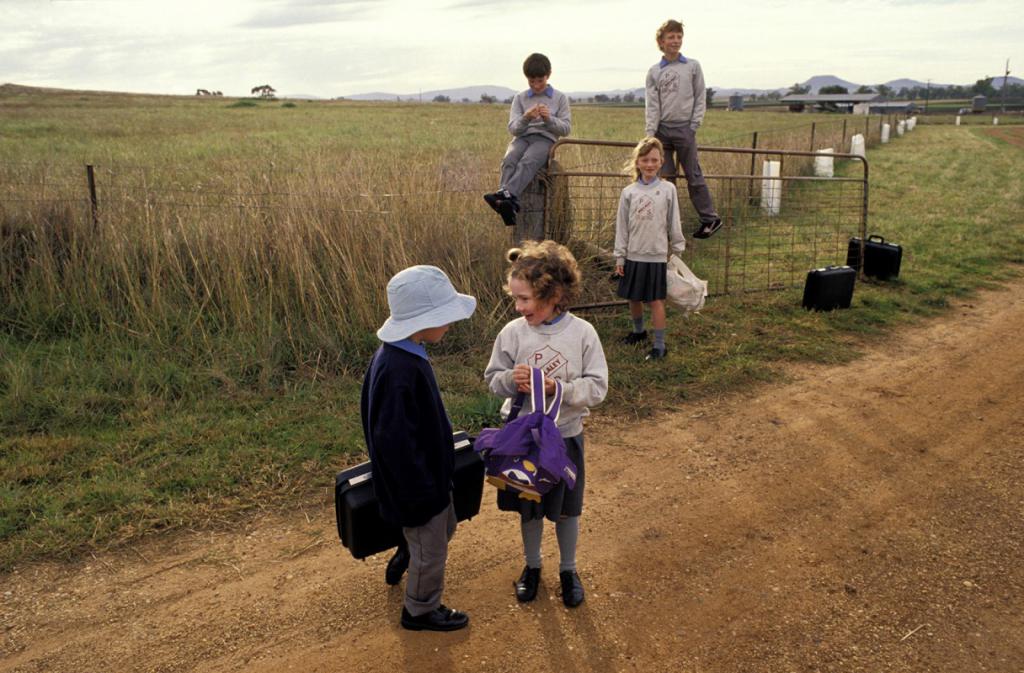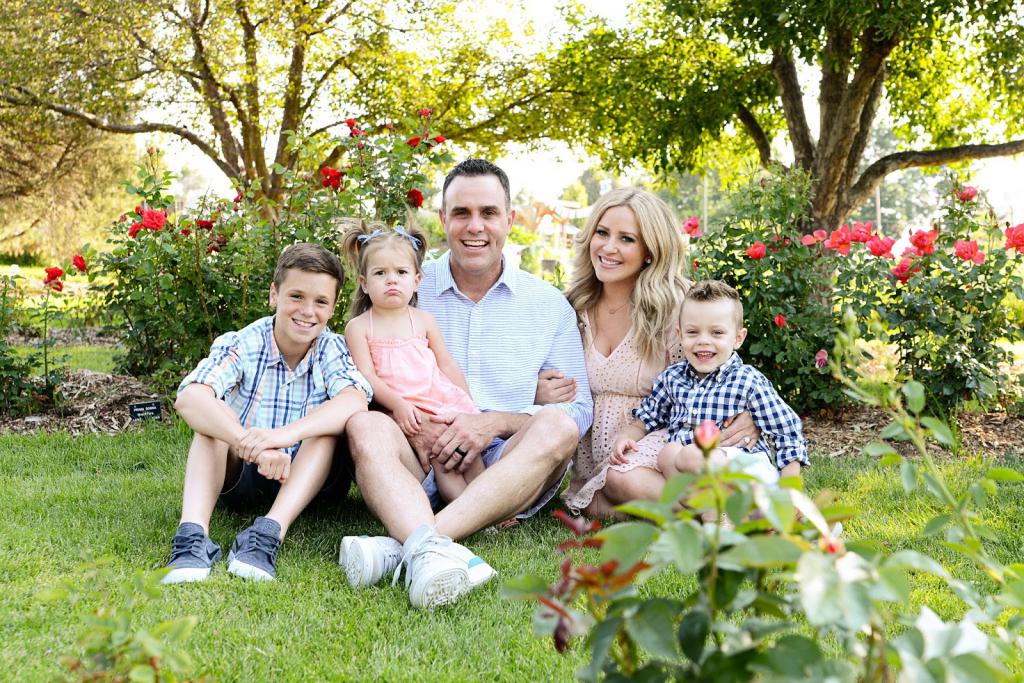In the legislation of the Russian Federation there is no exact definition of which family can be considered large. Therefore, to study this point, one should turn to regional legislative acts, in which the concepts can differ significantly. In each entity, certain benefits and support measures are assigned for these citizens. They can be expressed in various benefits and concessions. In some regions, land is allocated for a third child. It is intended to provide an opportunity for citizens to engage in the construction of a private house or in the management of a subsidiary farm.
Where is this opportunity offered?
Not all regions allocate plots for families recognized as having many children. Therefore, to find out whether they give land for a third child, one must independently when visiting the social protection department of a particular region.
This opportunity is provided in the Krasnodar Territory and the Moscow Region. Also, residents of Omsk, Ulyanovsk and Ivanovo regions can use it.
The number of regions that give out land at the birth of a third child is constantly increasing, since all subjects of the Russian Federation really need to increase the birth rate.
Under what conditions can I get land?
Land for the third child is due to citizens who have issued the status of a large family. Usually it is formalized by families in which more than two children are brought up.

It should be understood under what requirements land is provided for a third child. The conditions may vary slightly in different regions, but the following are standard for them:
- The family has an official status confirming that it is a large family, so you first have to take care of obtaining the appropriate certificate.
- All family members must be Russian citizens, and in some regions parents or children are allowed to have dual citizenship, while in others this serves as a basis for refusing to provide a site.
- Land for a third child is given on the condition that the parents live together with all the kids, so they must have registration at one place, and at the same time it can be temporary or permanent.
- All three children must not be of legal age.
- Not only native children are taken into account, but also foster children, as well as children over whom citizens have formalized guardianship.
- It is allowed to apply for this type of state support to one parent, if there is an incomplete family.
The status of a large family should be registered in advance, and it can be extended until the eldest child reaches the age of 18.
How to get the status of a large family?
Before applying for land, you must first obtain a certificate confirming that the family is indeed a large family. In most regions, at least three children must be brought up for this. For registration of the status, sequential actions are performed:
- The conditions of the region regarding the assignment of this status are studied.
- Documents are prepared that confirm that parents raise three or more children, are officially married, and often other facts need to be confirmed if necessary.
- An application for status assignment is written.
- All documents must be brought to the social security department of a particular region.
- The documentation is studied by the employees of this institution, and the procedure is free, so you do not have to pay any state fee for this.
- If a positive decision is made, then the parents receive a certificate that confirms their status as a large family.
This document should be used for registration of land for a third child. In its absence, it is not necessary to count on this measure of support from the state.

Where to go for the land?
To obtain a land plot, a large family must perform certain actions:
- Initially, it is necessary to check whether they give land for a third child, for which you can visit or call the social security authorities to clarify this issue.
- If it turns out that there is a possibility of registration of the territory, then we must stand in a special queue to receive the site.
- For this, an application is submitted with other necessary documents to the local administration.
- Particular attention is paid to the compilation of the application, which should have a certain form, and it also expresses a request for a certain plot and spells out what purposes it is planned to use the land for.
- The documentation is checked by employees of the administration, after which an answer is given.
- If it is positive, then the family is placed in the queue, for which she is assigned a certain number, with the help of which parents can find out their turn.
- A month is given for the commission to make a decision about which site from the existing territories in the land fund of the region will be allocated to a particular family.
Having figured out how to get land for a third child, each large family will be able to count on the design of a certain plot, which can be used for different purposes. At the expense of it, an opportunity is given to build your own house or to conduct a subsidiary farm.
Land is allocated exclusively in turn order, so as a standard you have to wait about a year. During this time, the family receives land at its full disposal. If for some reason the family abandoned the land, and after changing their minds, you will have to re-collect all the documents.

What documents will be needed?
First, you need to make sure whether the land is laid for a third child in the region. If land is issued to citizens who meet certain conditions, then the necessary documents must be prepared. These include:
- a correctly formed statement in which it is necessary to indicate for what purposes it is necessary to obtain a site;
- certificate of birth of each child;
- passports of parents, and if the family is incomplete, then only the passport of the mother or father is needed;
- if the family is complete, then the certificate of registration of marriage is required;
- a certificate received at the passport office confirming that all family members are registered in one place;
- a certificate indicating that parents are not deprived and not limited in their rights to children;
- certificate confirming that the family received the status of large families in an official way;
- if adopted children are brought up, an appropriate document on adoption is required;
- from the guardianship authorities it is necessary to obtain a certificate that the adoption has not been canceled for any reason.
Based on all the papers, land will be provided for the third child. Documents in almost all regions are the same, but local authorities may require additional documentation if, with its help, certain facts about the family are confirmed.
The procedure for the provision of plots
Obtaining land for a third child after transferring all the necessary documents to the social protection authorities is quite easy:
- After the transfer of documentation, you must wait for the decision of the commission.
- The decision is usually made within 30 days, but if there are no required documents, they will have to be communicated to the applicants, which increases the time limit.
- All documents submitted are subject to legal review, and family information is examined.
- If the decision is positive, then citizens receive an official notice indicating that a allotment is being formed for a specific large family.
- If a negative decision is made, then it must be reasonable and reasoned, and this is usually due to the lack of official registration of marriage between parents or family relocation to another city.
- If the answer is yes, the family queues, for which they are assigned a specific number.
- According to the law, a plot of land for a third child must be allocated within a year after a decision is made.
- Often the region simply does not have the required number of sites, and in this case, the period may increase.
- Before receiving land, the family must pay for a topographic survey of the territory in order to obtain a site plan.
- The process of territory transition in the management of city architecture is approved.
- Next, land surveying is carried out, and all costs are offset by means of a large family.
- With the results, you can go to Rosreestr to register the allotment.
- The family receives an extract from the USRN and the property certificate.

The standard procedure does not take more than a year, but in certain situations, regions may completely suspend the process of providing land for large families.
How is land registered in property?
The plot is transferred on the basis of a lease, and in some regions the possibility of registering the plot as a property is provided, while in others it can only be done some time after receiving the allotment. Therefore, it is necessary to learn about it directly in the local administration.
Areas for various purposes are issued, and if the application for their receipt indicates the construction of a residential building, then it is not allowed to place a garden on the territory, as this may become the basis for the removal of the allotment.
What is the size of the plot?
It is impossible to say exactly how much land for a third child is issued by the regions, since each subject of the Russian Federation has its own rules regarding this issue.
On average, a territory is assigned, the size of which varies from 6 to 10 hundred parts. Maximum issued 15 acres. Land may be located within or outside the city. In large cities there is no opportunity to obtain an allotment located directly in the city, so it can be located exclusively in the region.

Can I sell the resulting plots?
If land is made into the property of a large family, then citizens can dispose of it at their discretion, therefore, if necessary, they can sell it to third parties.
Before the sale, you should study the contract drawn up with the municipal authorities, since if there is a condition on the basis of which it is impossible to sell the land for a certain time, you will have to wait, otherwise the transaction may be invalidated.
Also, the contract often indicates the need to build a house on the ground, and in this case it will be necessary to erect a building, and only after that it will be possible to sell it together with the site.

When can I get a refusal?
For a third child they give land only if certain conditions are met, therefore there are some reasons for refusing to extradite it if the family does not meet all the requirements. The main causes of failure include:
- the transferred documents contain errors or false information;
- the family moved to another region;
- not enough documents are being transmitted;
- previously the family has already received an allotment from the state;
- the presence of one of the parents or children of foreign citizenship.
The refusal is necessarily executed by the administration staff in writing, and the document contains the reason for such a decision. If it consists in an insufficient number of documents, then citizens can bring the necessary papers, after which they will be put in the queue for land.
Do I have to pay for the land?
Land is provided on a rental basis, so every year you have to pay a low rent set by the regional authorities.
After registration of the allotment in the property, you have to pay property tax if the family can not use different benefits to reduce the payment or exemption from this fee.

Tips for large families
To get a conveniently located and optimal size plot, it is not recommended to agree to the very first offer. It is advisable to consider several options to choose the most suitable site. Therefore, the recommendations are taken into account:
- it is advisable to inspect the territory directly before signing the contract;
- the communications laid to the site are taken into account, since in their absence the construction of a private house will be complicated;
- it is recommended to examine the territory to find all of its shortcomings, represented by the presence of ravines or marshy areas;
- you need to talk with the owners of neighboring sites to find all the disadvantages of obtaining such a territory.
Only if the allotment meets all the requirements of a large family can you conclude an agreement with the administration of the region.
Thus, in many regions large families with more than two children can rely on free land. It can be used for different purposes, which are chosen by the citizens themselves. An allotment is provided for a year, but for this the family must meet certain requirements. Due to such assistance from the state, citizens get the opportunity to build houses or engage in gardening.
